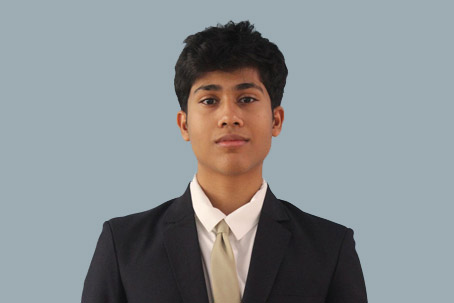
Deputy Secretary-General : Aarav Reddy
"We are facing a world of problems that are piling up like cars in a chain reaction crash. Crises like climate, conflict, and the cost of living are converging to create an unprecedented moment of peril."
- Antonio Guterres, UN Secretary-General
Dear delegates and Esteemed MUN directors,
The term polycrisis is not just a neologism– it is a warning. You and I live in a world confronted not just by one calamity, but by the convergence of many: pandemics, war, inflation, climate collapse, food insecurity, technological upheaval, and democratic backsliding. Each crisis is daunting in isolation; together, they form a Gordian knot that challenges the assumptions upon which the post-World War II order was constructed.
Seventy-eight years ago, the architects of the United Nations envisioned a world governed by law, not power. Today, that vision is under siege. A globalized network of interdependence demonstrably accelerates both opportunity and vulnerability. A recession in one corner of the globe ripples into supply chain chaos in another. Drought in the Global South turns into food riots. A virus in a wet market mutates into a global lockdown. And amid it all, the pillars of multilateralism groan under the weight of competing national interests.
We do not face a single enemy, nor a defined frontline. This is not a war that can be won with arms or ideology. It is a slow-burn catastrophe, one that exposes the fragility of international cooperation. The new global order is no longer unipolar or bipolar, but fragmented and multipolar. As a result, transactional diplomacy has emerged - fleeting alliances are based on short-term benefit rather than long-term growth.
Some argue that chaos is the new normal, and that the concept of global governance is antiquated. But such nihilism ignores the quiet strength of institutions. The very existence of the Model United Nations is evidence that discourse endures even when unity does not. If the old order is indeed crumbling, then what takes its place must not be decided in the backrooms of power, but in the open forums of youth, ideas, and empathy.
Polycrisis demands more than policy: it demands adaptability. Not just strong states, but resilient ones. Not just leaders, but listeners. We must transition from dominion over nature to harmony with it. From rivalry to reciprocity. From short-term political gains to long-term planetary stewardship. In a world where every issue is connected, solutions must be integrated.
And perhaps that is the challenge of this century: to build solidarity in a world of silos. The climate activist in Dhaka, the peace negotiator in Kyiv, the food scientist in Nairobi– they all inhabit the same planet but rarely the same platform. The United Nations must become that platform. Not merely a hall of diplomacy, but a forge for a new kind of multilateralism: one that is distributed, democratic, and daring.
Let us not forget: this polycrisis is not just a test of leadership, but of imagination. If the world is unravelling, then we must be the ones who reweave it: with courage, not convenience.
The 22nd Edition of DAIMUN does not shy away from complexity; it embraces it. This year, we do not ask you to solve just one problem, but to confront the web in which they all reside. For it is only in complexity that diplomacy proves its worth: not as a luxury of peace, but as a necessity of survival.
Delegates, as you take your seats in committee, one question remains: will you merely weather the storm, or actively shape the new world that follows?
Warm Regards,
Aarav Reddy
Deputy Secretary General
DAIMUN 2025